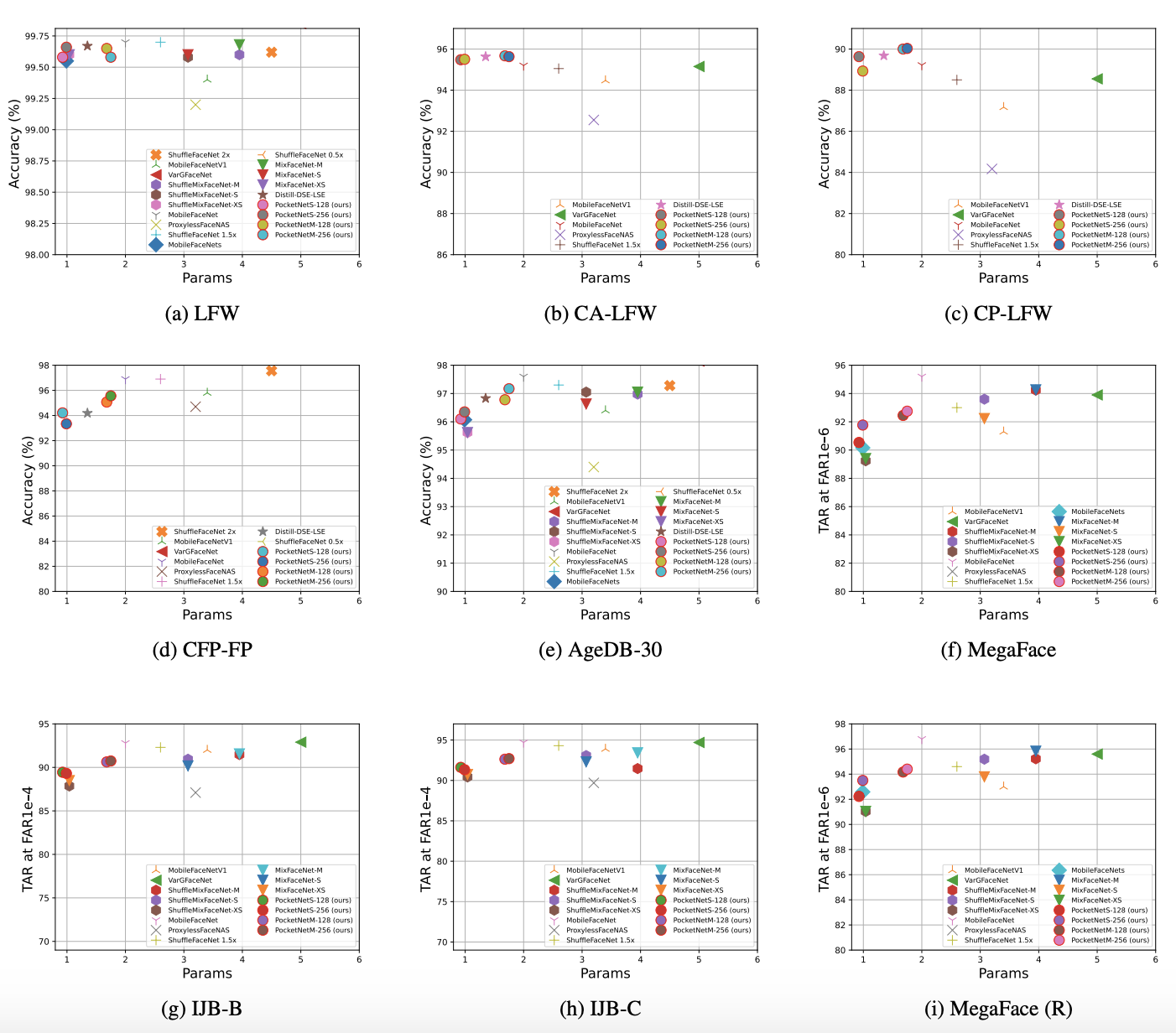PyTorch implementation of PP-LCNet
Reproduction of PP-LCNet architecture as described in PP-LCNet: A Lightweight CPU Convolutional Neural Network by C. Cui. T. Gao, S. Wei et al (2021) with the PyTorch framework.
The official design is implemented with Paddle framework, the detail here
Models
| Architecture | #Parameters | FLOPs | Top-1 Acc. (%) |
|---|---|---|---|
| PPLCNet_x0_25 | 1,522,960 | 18M | |
| PPLCNet_x0_35 | 1,646,888 | 29M | |
| PPLCNet_x0_5 | 1,881,864 | 47M | |
| PPLCNet_x0_75 | 2,359,792 | 99M | |
| PPLCNet_x1_0 | 2,955,816 | 161M | |
| PPLCNet_x1_5 | 4,504,136 | 342M | |
| PPLCNet_x2_0 | 6,526,824 | 590M | |
| PPLCNet_x2_5 | 9,023,880 | 906M |
Stay tuned for ImageNet pre-trained weights.
Acknowledgement
The implementation is heavily borrowed from HBONet or MobileNetV2, please kindly consider citing the following
@InProceedings{Li_2019_ICCV,
author = {Li, Duo and Zhou, Aojun and Yao, Anbang},
title = {HBONet: Harmonious Bottleneck on Two Orthogonal Dimensions},
booktitle = {The IEEE International Conference on Computer Vision (ICCV)},
month = {Oct},
year = {2019}
}
@InProceedings{Sandler_2018_CVPR,
author = {Sandler, Mark and Howard, Andrew and Zhu, Menglong and Zhmoginov, Andrey and Chen, Liang-Chieh},
title = {MobileNetV2: Inverted Residuals and Linear Bottlenecks},
booktitle = {The IEEE Conference on Computer Vision and Pattern Recognition (CVPR)},
month = {June},
year = {2018}
}

![[CVPR21] LightTrack: Finding Lightweight Neural Network for Object Tracking via One-Shot Architecture Search](https://github.com/researchmm/LightTrack/raw/main/Archs.gif)




